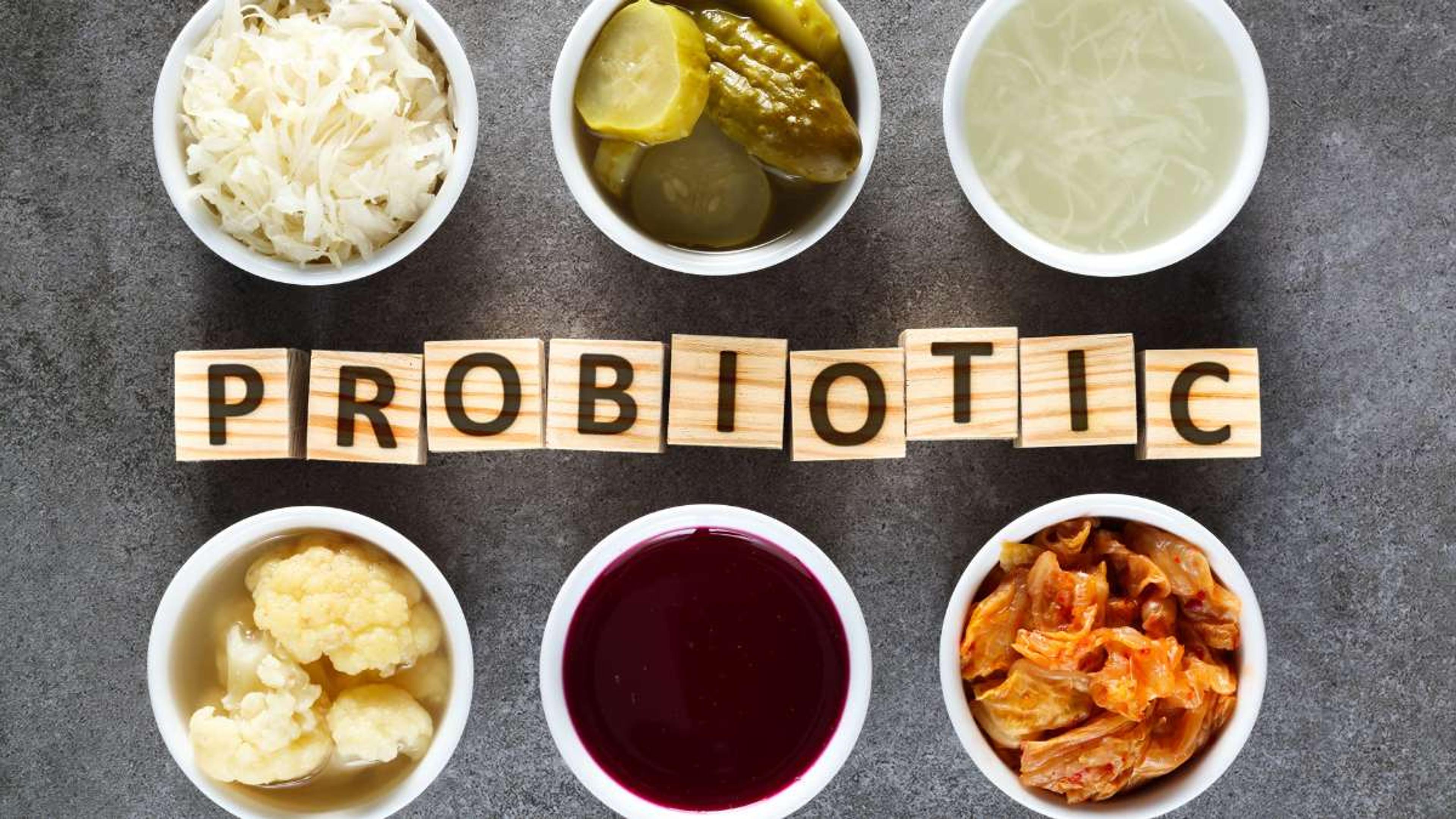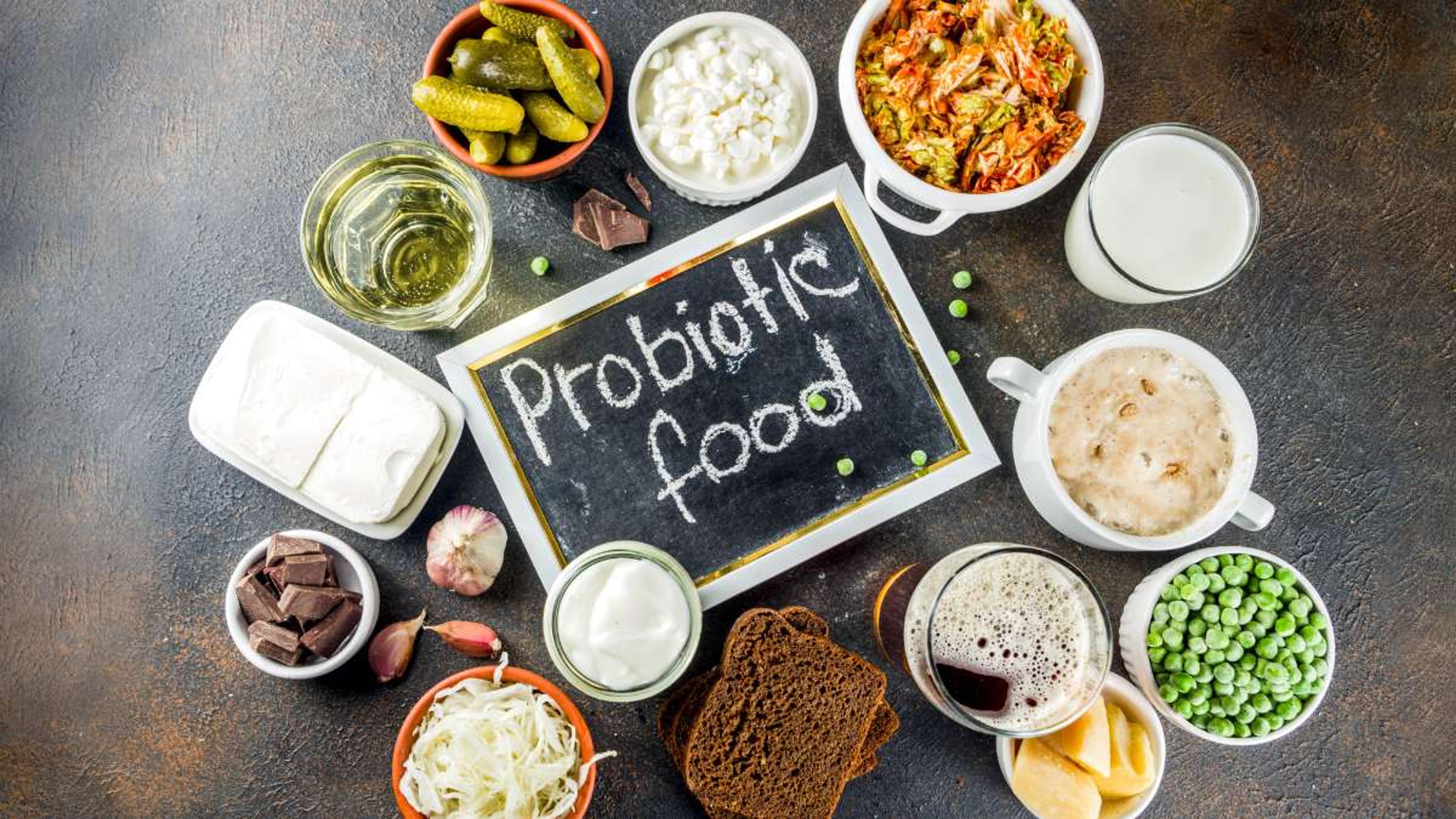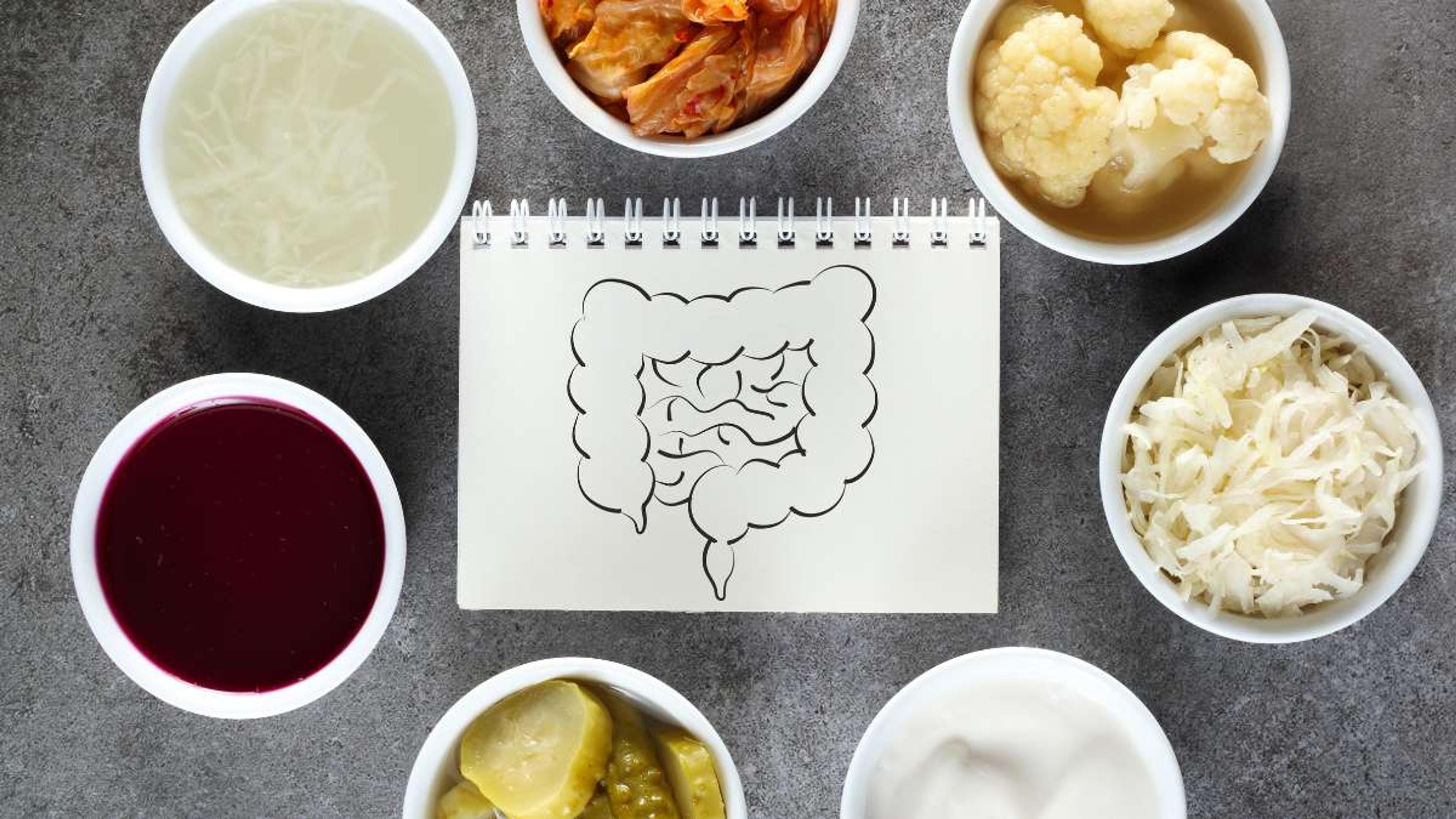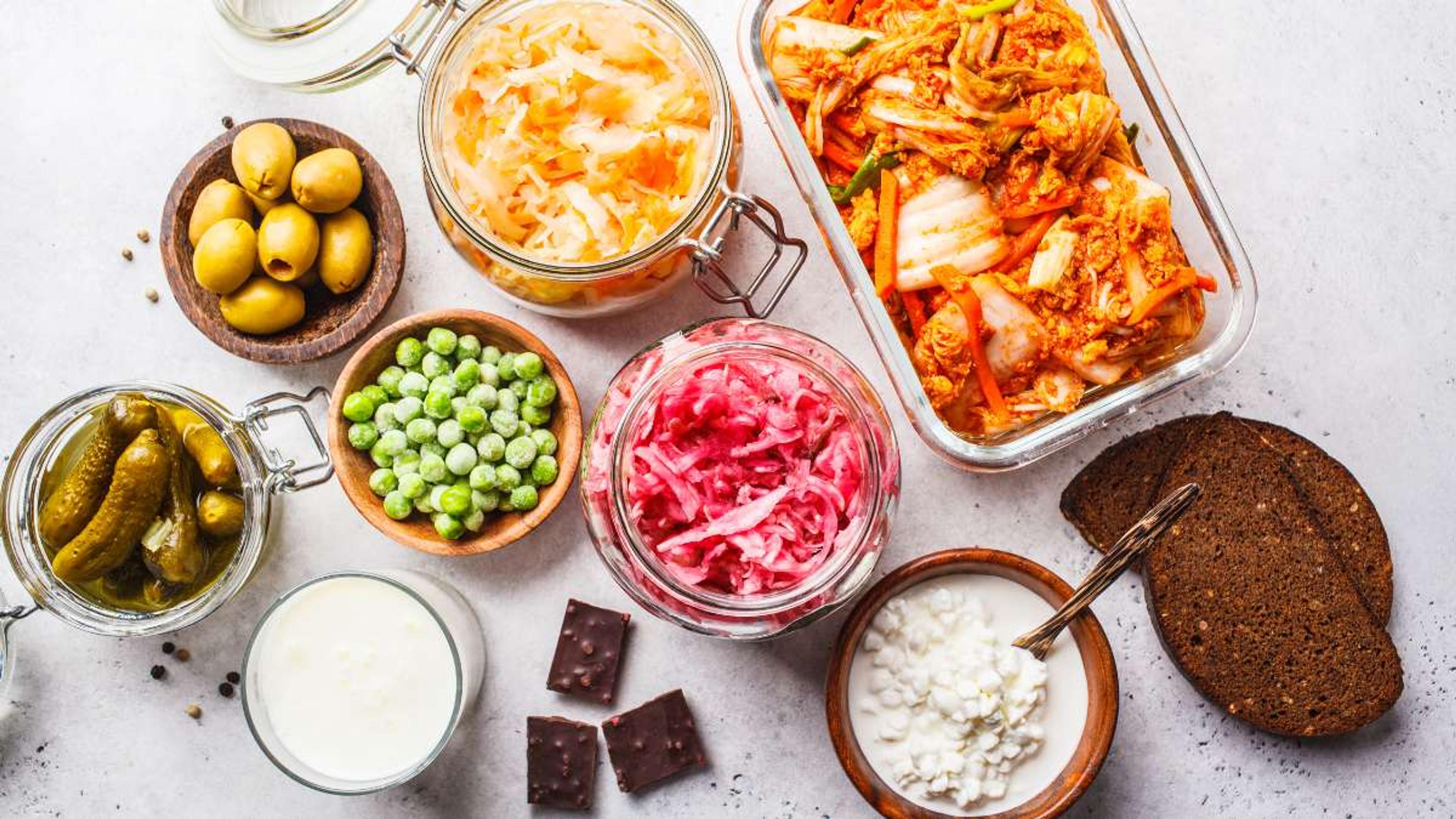Vegan Probiotic Foods: Essential for Digestive Health

- Key Takeaways
- 10 Vegan Probiotic Foods
- Benefits of Vegan Probiotics
- 5 Ways to Incorporate Vegan Probiotic Foods into Your Diet
- Conclusion
- FAQs
Do you wonder how to get probiotics on a vegan diet? It's a common misconception that only dairy-based foods like yogurt are rich in these beneficial microorganisms. This blog is here to guide you through the amazing world of vegan probiotic foods, packed full of gut-friendly benefits.
Ready to boost your health with plant power? Let's dive right in!
Key Takeaways
- Vegan probiotic foods include sauerkraut, kimchi, miso, pickled vegetables, tempeh, kombucha, water kefir grains, nondairy cheese, sourdough bread, and fortified non-dairy yogurts.
- These vegan probiotic foods offer benefits such as improved digestion, enhanced immune function, reduced inflammation, increased nutrient absorption, and maintenance of a healthy gut microbiome.
- Ways to incorporate these vegan probiotic foods into your diet include adding them as toppings or condiments to meals.
10 Vegan Probiotic Foods
Here are 10 vegan probiotic foods that can help improve your gut health: sauerkraut, kimchi, miso, pickled vegetables, tempeh, kombucha, water kefir grains, nondairy cheese, sourdough bread, and fortified non-dairy yogurts.

1. Sauerkraut
Sauerkraut is a great vegan probiotic food. It is made by fermenting cabbage. This process boosts its vitamins, minerals, and antioxidants. Sauerkraut has vitamins K, vitamin c, and B. It also has calcium, magnesium, fiber, and folate.
Always choose unpasteurized sauerkraut brands for the best health benefits.
2. Kimchi
Kimchi is a Korean dish. People make it with salted and fermented vegetables. You can find many kinds of vegetables in Kimchi. Cabbage and Korean radishes are often used, along with spices.
It's loved for its strong taste.
It also gives health benefits. This food has probiotics which helps your gut health. Vegan kimchi is full of good bacteria just like the traditional kind. It is seen as one of the best vegan probiotics out there! Making vegan kimchi changes the types of help-giving tiny life forms that live in it, called "microbiome".
It's great for people who follow a plant-based diet!
3. Miso
Miso is a top pick for vegan probiotics. It comes from soybeans and is full of live active cultures due to fermentation. This makes miso a great source of probiotics even for people who can't eat lactose.
Eating miso can do cool things for your body like improve digestion and give you more energy. Some folks find it helps with weight loss too! Miso doesn't have any major health risks linked to it, which means most people can enjoy its taste and benefits without worry.
4. Pickled vegetables
Pickled vegetables, such as sauerkraut, pickles, and kimchi, are some of the best vegan probiotic foods you can eat for a healthy gut. They contain beneficial bacteria like Lactobacillus and bifidobacterium, as well as yeast called Saccharomyces boulardii. Adding a splash of vinegar to the pickling process can enhance the flavor and provide additional health benefits.
These probiotics help improve your gut health by promoting digestion and boosting your immune system. You can easily make pickled vegetables at home using carrots, cucumbers, radishes, or cauliflower.
By adding them to your meals or enjoying them as snacks on their own, you can incorporate these probiotic-rich foods into your diet and reap their benefits for better overall health.
5. Tempeh
Tempeh is a vegan food made from fermented soybeans. It's loaded with fiber, which is good for the gut. This makes tempeh a great choice for promoting gut health and feeding beneficial bacteria in our bodies.
Plus, tempeh is considered one of the top vegan probiotic foods out there. Another benefit of tempeh is its vitamin B12 content, which is really helpful for people following a vegan or vegetarian diet since this vitamin can be harder to get without consuming animal products. For a delicious and nutritious meal, try adding tempeh to miso soup.
So, by adding tempeh to your meals, you're not only enjoying a tasty plant-based protein source but also giving your gut some healthy support!
6. Kombucha
Kombucha is a type of fermented tea that is often considered one of the best vegan probiotics. It has a sweet and mildly acidic taste, making it a popular choice among health-conscious individuals.
Kombucha is both vegetarian and vegan-friendly, as it does not contain any animal products. This fizzy beverage is rich in live microorganisms known as probiotics, which can be beneficial for gut health.
Additionally, kombucha contains antioxidants that help protect the body against harmful bacteria. So if you're looking to incorporate vegan probiotic foods into your diet, consider giving kombucha a try!
7. Water Kefir Grains
Water kefir grains are one of the best vegan probiotics available. They are suitable for plant-based, vegan, and lactose-free diets. Water kefir is considered a potential source of prebiotics, probiotics, and antioxidants for vegans and individuals who are intolerant.
It is a non-dairy alternative to regular kefir, making it an excellent option for those with lactose intolerance. Water kefir is dairy-free and vegan-friendly, providing beneficial bacteria to support gut health in a plant-based diet.
8. Nondairy cheese
Nondairy cheese is a great option for vegans who want to enjoy the taste and texture of cheese without consuming any animal products. It is made from plant-based ingredients like nuts, seeds, and soybeans.
Nondairy cheese brands offer a variety of flavors and textures, so you can find one that suits your preferences. Some popular vegan cheese brands include Daiya Foods, Violife, Field Roast, Miyoko's Creamery, New Roots, and Treeline Cheese.
These cheeses are not only free from cholesterol found in traditional dairy products but also rich in phytochemicals and antioxidants. They provide essential vitamins and minerals while adding a delicious twist to your favorite dishes.
9. Sourdough bread
Sourdough bread is a delicious vegan probiotic food that undergoes a fermentation process, resulting in a tangy flavor and chewy texture. The fermentation process involved in making sourdough bread makes it an ideal choice for vegans looking to incorporate probiotic foods into their diet. This traditional bread is made with a sourdough starter, which is a mixture of flour and water that naturally ferments over time.
During fermentation, beneficial bacteria and yeast work together to break down the carbohydrates in the dough, making it easier to digest and increasing its nutritional value. These microorganisms also produce lactic acid, which gives sourdough bread its distinct tangy flavor.
In addition to being a vegan-friendly source of probiotics, sourdough bread is also rich in nutrients like iron, magnesium, and B vitamins. It has a lower glycemic index compared to regular bread, which means it can help regulate blood sugar levels and promote better digestion.
10. Fortified Non-Dairy Yogurts
Fortified non-dairy yogurts are a great option for those following a vegan diet who want to incorporate probiotics into their meals. These yogurts are typically made from plant-based ingredients like soy, almond, or coconut milk instead of dairy.
They are fortified with probiotic bacteria to provide the same benefits as traditional yogurt. Just like their dairy counterparts, non-dairy yogurts contain live cultures of beneficial bacteria that can support digestion and promote a healthy gut microbiome.
The specific types and amounts of probiotics may vary between brands, so it's important to check the label to ensure you're getting the desired strains. By choosing fortified non-dairy yogurts, you can enjoy the benefits of probiotics while sticking to your vegan lifestyle.
Benefits of Vegan Probiotics
Vegan probiotics offer several benefits, including improved digestion, enhanced immune function, reduced inflammation, increased nutrient absorption, and maintenance of a healthy gut microbiome.
Discover how these probiotic-rich foods can boost your overall health and well-being. Read on to learn more!

Improved digestion
Vegan probiotics can help improve digestion by maintaining a healthy balance of good bacteria in our bodies. These good bacteria support the breakdown and absorption of food, reducing common gut issues like diarrhea and constipation.
Probiotics have been shown to alleviate gastrointestinal problems, leading to overall better digestion. Additionally, plant-based probiotics naturally boost our immune system, which indirectly contributes to improved digestion.
By reducing inflammation in the gut, vegan probiotics create an environment that supports optimal digestive function. So if you're looking to enhance your digestive health, incorporating vegan probiotic foods into your diet is a smart choice!
Enhanced immune function
Vegan probiotics can boost your immune system. These probiotics contain good bacteria that support a healthy gut, which is linked to a stronger immune response. Studies have shown that consuming vegan probiotics can help enhance the function of immune cells in the intestines and promote a balanced gut microbiome.
This means that by incorporating vegan probiotic foods into your diet, you may be able to better protect yourself against infections, colds, and allergies. So, by simply adding these plant-based probiotics to your meals or snacks, you can give your immune system an extra boost.
Reduced inflammation
Vegan probiotics have been shown to reduce inflammation in our bodies. This is because plant foods contain polyphenols, which can increase the number of beneficial bacteria in our gut.
These good bacteria have anti-inflammatory properties, meaning they can help lower inflammation levels throughout the body. In fact, following a diet rich in fermented foods has been found to decrease inflammatory proteins.
For those with conditions like arthritis, vegan probiotics may be especially helpful as they can reduce inflammation and alleviate symptoms. Studies have even discovered that certain strains of Lactobacillus paracasei can promote overall health by reducing inflammation.
Increased nutrient absorption
Probiotics can play a role in increasing nutrient absorption in the body. They have been found to improve the utilization of micronutrients, such as vitamins and minerals, particularly in the small intestine.
This means that when you consume vegan probiotic foods or take probiotic supplements, your body may be better able to absorb and utilize the nutrients from other foods you eat. This is especially important for vegans, who may need an extra boost in nutrient absorption since they avoid animal products which are often rich sources of certain vitamins and minerals.
By incorporating vegan probiotics into your diet, you can support overall health by ensuring your body gets the most out of the nutrients it needs.
Maintenance of a healthy gut microbiome
Consuming vegan probiotics is important for maintaining a healthy gut microbiome. A diverse and stable microbial system in the gut is promoted by following a plant-based diet. This helps to balance the good and bad bacteria in our digestive system, improving digestion and overall gut health.
Probiotics found naturally in vegan foods, such as sauerkraut, kimchi, tempeh, and kombucha, can be just as effective as probiotic supplements. Including these probiotic-rich foods in our diet can increase the diversity of our microbiome and enhance immune responses.
So, incorporating vegan probiotics into our meals can have numerous benefits for our overall health.
5 Ways to Incorporate Vegan Probiotic Foods into Your Diet
Adding vegan probiotic foods to your diet is easy and delicious! Here are five simple ways to incorporate them into your meals and snacks. Don't miss out on the incredible health benefits of these plant-based probiotics.
Keep reading to find out more!

1. Adding them as toppings or condiments to meals
To incorporate vegan probiotic foods into your meals, you can simply add them as toppings or condiments. For example, you can sprinkle sauerkraut or kimchi on top of your salads or sandwiches to give them a tangy kick and introduce beneficial bacteria.
Another option is to use miso paste as a flavor enhancer in soups or stews. You can also enjoy tempeh as a meat substitute in burgers or stir-fries, adding not only protein but also probiotics to your meal.
By incorporating these plant-based probiotics into your dishes, you'll be boosting the health benefits of your meals while enjoying delicious flavors.
2. Enjoying them as snacks on their own
Vegan probiotic foods can be enjoyed as snacks on their own, making them a convenient and tasty option for boosting your gut health. Snacking on these foods is a simple way to introduce more beneficial bacteria into your system.
For example, sauerkraut, kimchi, kombucha, and water kefir are all delicious options that can be enjoyed straight from the jar or bottle. These snacks not only provide a flavorful experience but also offer numerous health benefits such as improved digestion and a strengthened immune system.
So grab a spoonful of sauerkraut or sip on some refreshing kombucha for an easy and healthy snack that supports your overall well-being!
3. Experimenting with homemade fermented foods
You can try making your own fermented foods at home to incorporate vegan probiotics into your diet. Homemade fermented foods are a great way to ensure that you're getting live cultures and beneficial bacteria.
You can experiment with different recipes and methods, like fermenting vegetables or making your own kombucha or water kefir. By trying out homemade fermented foods, you have control over the ingredients and fermentation process, allowing you to create a tailored probiotic-rich food that suits your preferences and dietary needs.
Plus, it can be a fun and rewarding culinary experiment!
4. Incorporating fermented foods into your daily routine
You can easily incorporate fermented foods into your daily routine to enjoy the benefits of vegan probiotics. Consider adding them as toppings or condiments to your meals for extra flavor and nutrition.
You can also enjoy fermented foods as snacks on their own, like sauerkraut or pickles. If you're feeling adventurous, try making your own homemade fermented foods for a personalized touch.
Another option is to include fermented foods in your daily meals as a regular side dish or staple food. Finally, if you prefer a supplement, look for vegan probiotic options that contain live cultures and beneficial bacteria.
5. Considerations for choosing supplements
When choosing vegan probiotic supplements, there are a few important factors to consider. First, look for supplements that contain highly researched strains of vegan probiotics, such as Saccharomyces boulardii and Lactobacillus acidophilus NCFM.
These strains have been shown to be effective in supporting digestive health and boosting immune function. Additionally, check the label for live cultures or CFUs (colony-forming units), as these indicate the number of beneficial bacteria present in each dose.
It's also a good idea to choose supplements from reputable brands that prioritize quality and purity. Lastly, if you have any specific health concerns or dietary restrictions, it may be helpful to consult with a healthcare professional who can recommend the best vegan probiotic supplement for your needs.
Conclusion
Incorporating vegan probiotic foods into your diet is a great way to support a healthy gut and overall well-being. From sauerkraut to tempeh, there are plenty of plant-based options to choose from.
Whether you enjoy them as toppings, snacks, or homemade ferments, these foods can provide the benefits of probiotics without the need for animal products. So go ahead and give your gut some love with these delicious and nutritious vegan probiotic foods!
FAQs
1. What are some vegan sources of probiotics?
Some vegan sources of probiotics include fermented foods like sauerkraut, kimchi, tempeh, miso, and dairy-free yogurts made from coconut or almond milk.
2. Can I get enough probiotics from a vegan diet alone?
Yes, you can get enough probiotics from a vegan diet by including a variety of fermented foods in your meals and snacks.
3. Why are probiotic foods important for vegans?
Probiotic foods are important for vegans as they help maintain a healthy balance of gut bacteria, support digestion, boost immune function, and improve overall gut health.
4. Are there any potential risks or side effects to consuming vegan probiotic foods?
In general, consuming vegan probiotic foods is safe for most people. However, if you have certain medical conditions or compromised immune systems, it's best to consult with a healthcare professional before increasing your intake of these foods.

